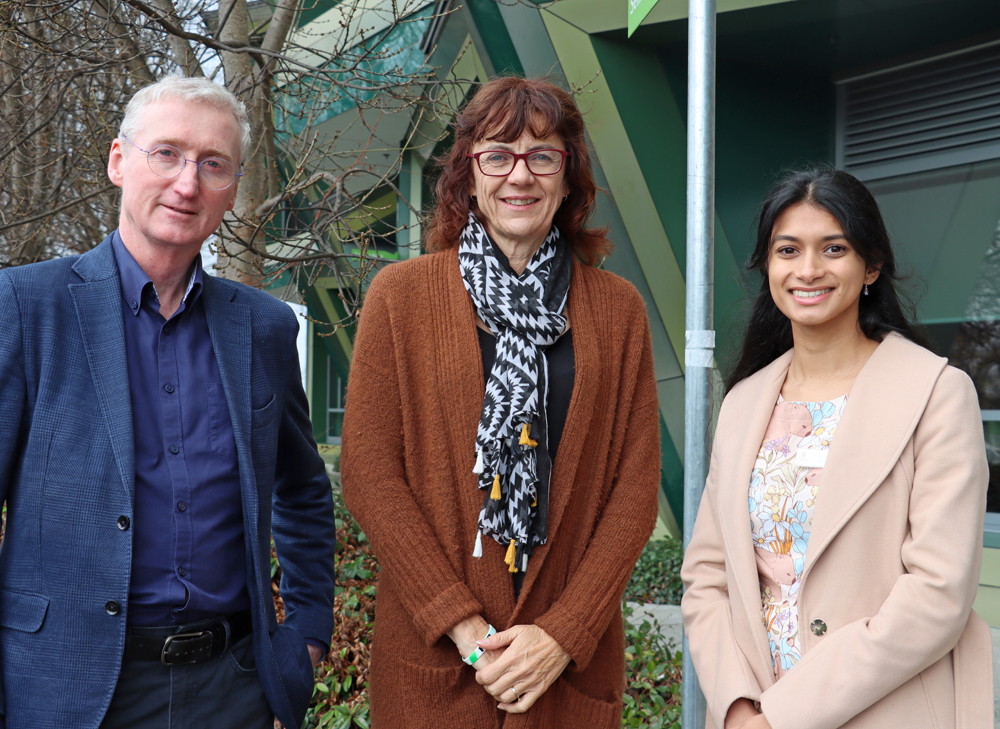
Study into fear of cancer recurrence in older women
For survivors of cancer and its treatment, the fear of their disease returning can be a constant and overwhelming struggle.
A new study at the Albury Wodonga Regional Cancer Centre aims to identify the fear of cancer recurrence (FCR) in older women who have completed treatment for gynaecological cancer, and how they may be better supported in the future.
The Albury Wodonga Regional Cancer Centre Trust Fund has committed $64,000 over three years to enable the research overseen by the Border Medical Oncology Research Unit, UNSW Rural Clinical School and the La Trobe University John Richards Centre for Rural Ageing Research.
It will involve delving into the database of patients treated for gynaecological cancers over the past 10 years, as well as interviews with a sample of up to 15 cancer survivors.
Project lead, Assoc Prof Christopher Steer, said many women with gynaecological cancer, including ovarian and endometrial cancer, remain in remission after treatment.
But constant worrying and anxiety about the cancer coming back can have huge impacts on their quality of life.
“Australian research is leading the way in dealing with the psychological distress that FCR can bring to patients with cancer,” he said.
“However, there is very limited information in the scientific literature about the way in which older women with cancer approach the possibility of their cancer returning.
“Prior research has often focussed on younger women and noted that younger age is a risk factor for increased severity of FCR.
“Our research is asking a group of older women who are in remission from their cancer, what the fear of the cancer returning means to them and how they cope with this ever present issue.”
La Trobe Research Fellow, Dr Stacey Rich, said there was a lot of “wonderful and exciting research” happening in the cancer treatment space, but the cancer journey doesn’t end when treatment stops.
“And that is where our research comes in,” she said.
“Thanks to the funding provided by the Trust Fund, we can investigate how this traditionally overlooked group experiences the thoughts and emotions that come with not knowing if cancer will return.
“Once we get a clearer picture of how women over the age of 65 experience fear of cancer recurrence, we can investigate ways to alleviate what can potentially be a debilitating experience.”
UNSW medical student, Senara Kulatunga, said she was excited to conduct the research in a regional setting.
“Having grown up in a regional town, I have witnessed first-hand the importance of providing community and rural-focused care,” she said.
“It is wonderful that we have the opportunity to interview women from within our region to learn how to best help them and others like them.
“Listening to the diverse stories of these women has given me a greater appreciation and insight into how the potential of cancer recurrence can impact lives.”
A second project included in the funding will look to introduce the OlderCan support tool, which encourages older people to write down information about themselves that their care team might not otherwise know, and photos of what is important to them to improve supportive care of cancer patients aged 70 and over.


